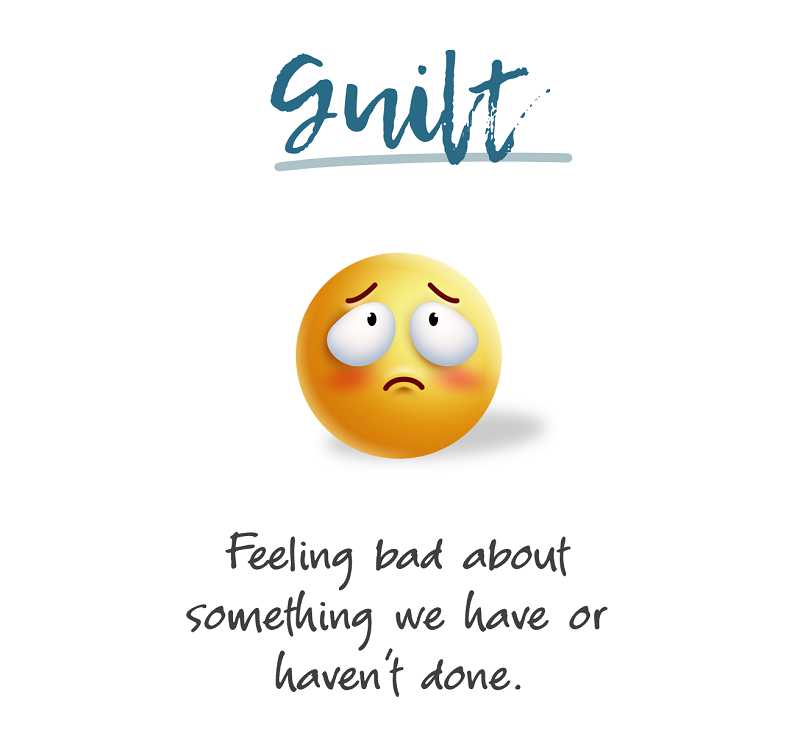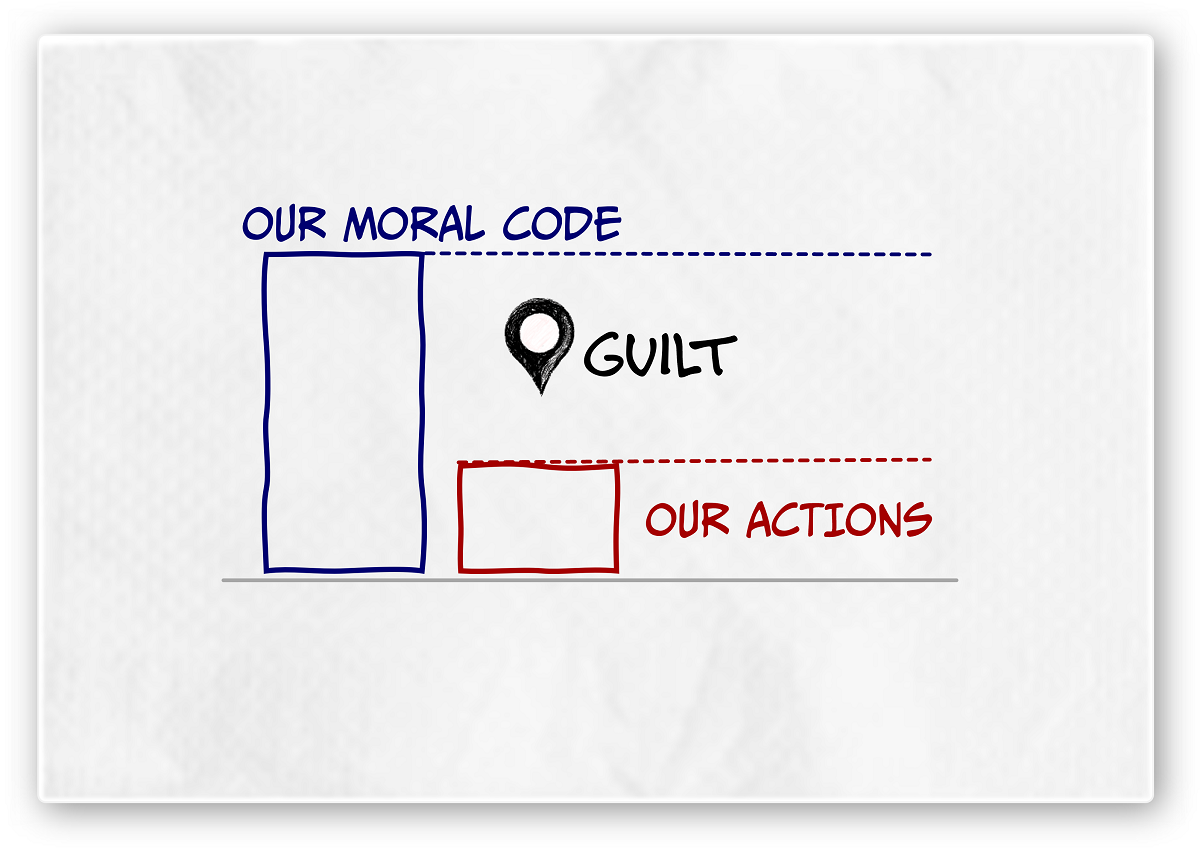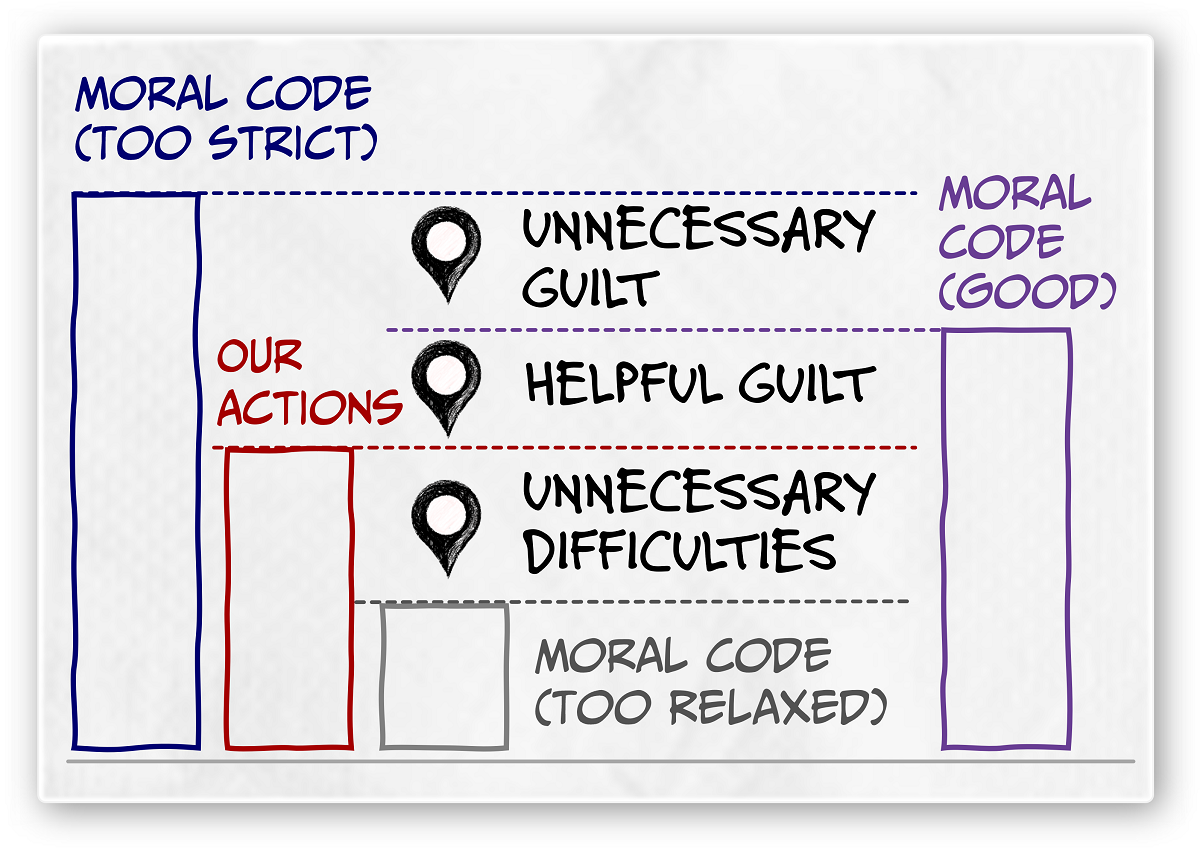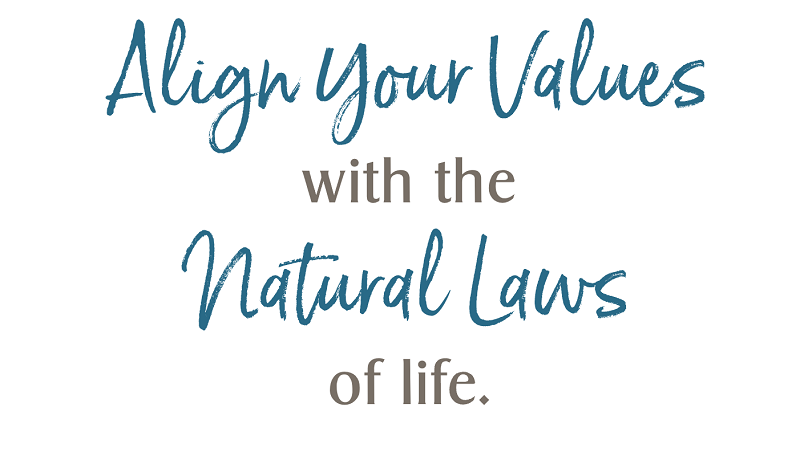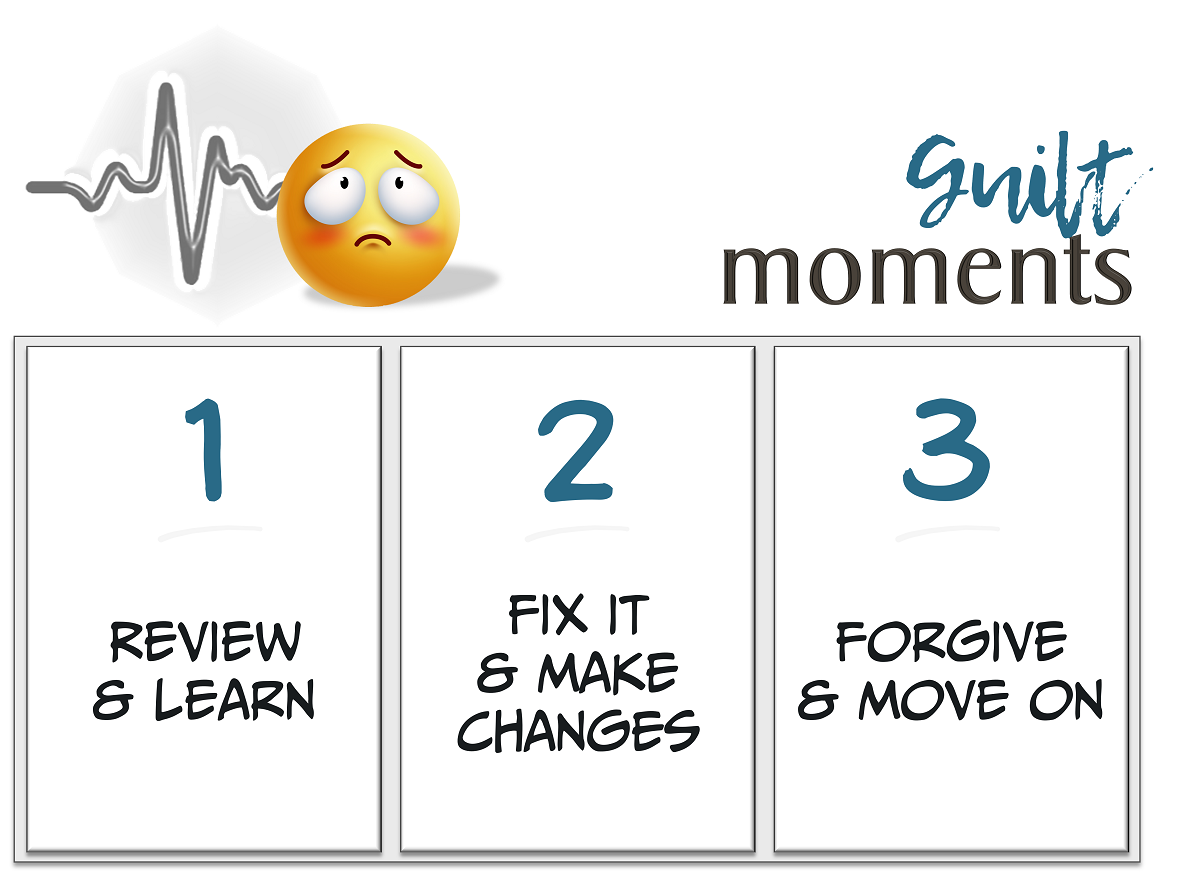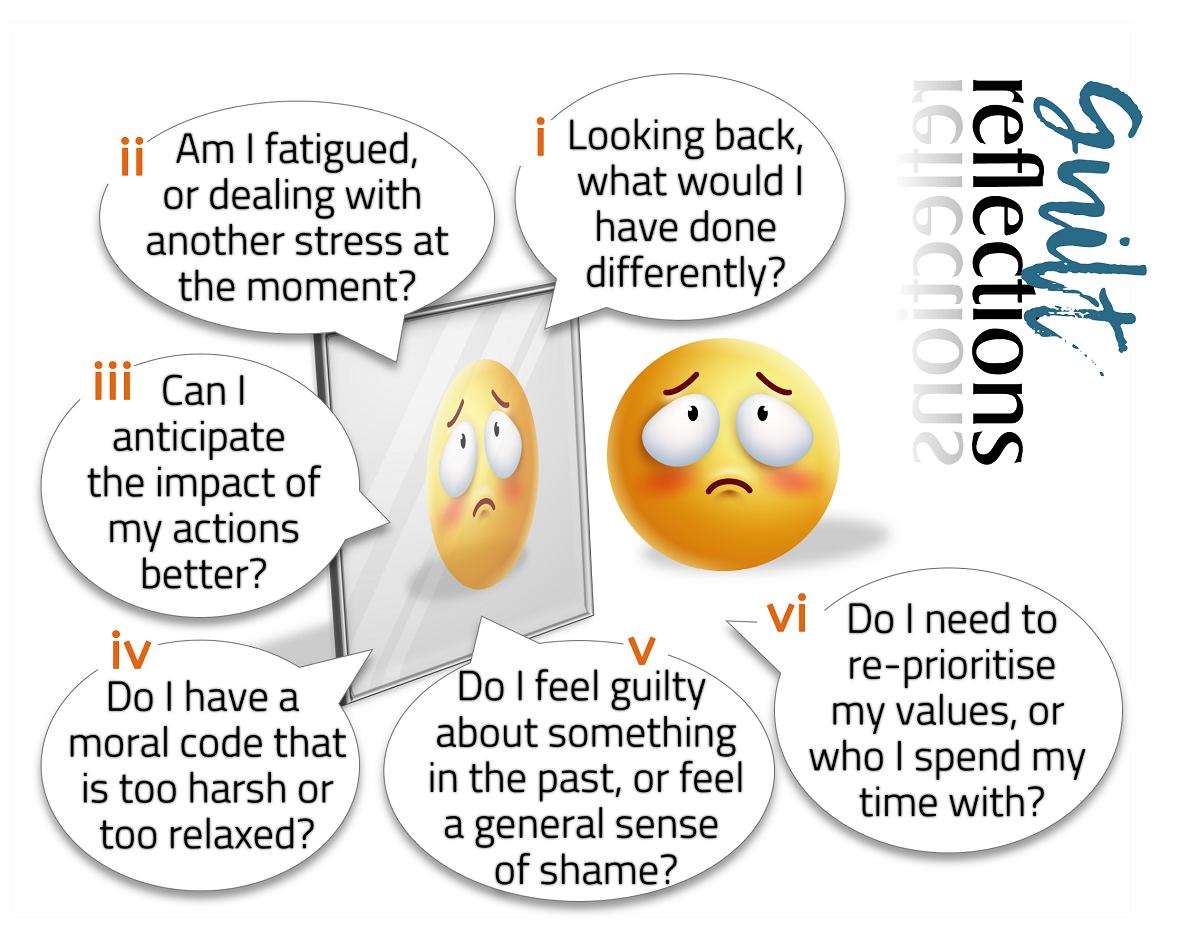What Is It About?
Napkin Version
We typically pick up our moral code, our sense of what is right and wrong, from those we grow up around, and from those we respect in our social group and wider community.
We feel guilty when we judge our behaviour as bad, based upon our moral code. Often this happens when we knew better at the time, but still behaved poorly. It can also happen when we didn’t consider the effect our behaviour would have on others, and people were hurt as a result of it.
GUILT CAN BE UNRELIABLE
Guilt depends on what we think is bad behaviour, rather than what actually is. So we can feel guilty even if our behaviour would never actually hurt anyone, or if the outcome wasn’t our fault.
We can also not feel guilty about doing something that hurts a lot of people, if we think we have a good reason for our actions, or if we simply don’t care about the others.
Sometimes our moral code is picked up as black and white rules to follow, which can be useful for straight forward situations. But they may fall short in situations that are more complex, or they may be too strict, and result in us feeling unnecessary Guilt.
On the other hand, if we pick up a moral code that is too relaxed, we can avoid feeling guilty, but may end up encountering more difficulties in life than we need to.
HELPFUL GUILT
Guilt is helpful when it teaches us the natural laws of life and encourages us to become wiser from the experience. This type of Guilt shifts our focus from judging ourselves, which is painful, to supporting our growth, which is helpful.
By considering the dynamics of the situation, making adjustments to how we approach life, repairing any damage we have caused, forgiving ourselves and everyone else involved for their part, we can learn from the experience, let go of the guilt, and get on with our life.
-
Since guilt can be unreliable, it can help to stand back and look at things as objectively as we can, all with gentle practicality, rather than harsh judgement and blame, to see if there is anything to be learnt from the situation.
-
Then if required, taking responsibility for our part and making amends to those who have been affected by it, and deciding what changes we will make to our approach in future, to avoid making the same mistake. See the Working Through Guilt section for more detail.
-
Once we have worked through our guilt, it is important to forgive ourselves (and others for their part), so we can let it all go, and move on wiser from the experience.
Handling Guilt
In The Moment
Training our brain to use a relevant process helps us to focus more effectively and move on more easily. Using it often will also help our brain to catch Guilt sooner, making it easier to manage.
Self-Reflection
If the emotion feels quite troubling, it’s usually worth checking if something else is going on first.
By resolving things in ourselves and clearing any other residual emotions, we can reduce the intensity of the emotion - now and when we encounter it again in future.
Doing so also makes us less likely to ‘attract’ other difficulties that leave us feeling the same way.
See the Processing and Clearing an Emotion page for a generic process to resolve and clear an emotion.
Working Through Guilt
The actions we choose to take in response to an emotion can make a significant difference to how well we adjust and move on from it.
The more we take genuine actions that are uplifting and ‘right’ i.e., are good for ourselves and everyone else (including the environment and other living beings) - for now, and over the long-term, the better our experience of life becomes.
Usually a process of reviewing, amending, and forgiving is helpful for working through Guilt:
Taking the time to understand the whole situation, appreciating different perspectives, and looking at the harm or risk we caused.
Determining what we are actually responsible for.
Learning from the experience – asking ourselves “Knowing what I know now, what would I have done differently?” can be helpful.
Looking at what needs to happen to resolve the situation.
Considering how we can apologise and make amends to anyone we harmed, without causing further damage. Then doing so from a place of genuine remorse, and commitment to change.
If making amends would cause more damage, considering what else e.g. at a community level, could help to ‘balance’ things out.
Looking at what changes might help us avoid making similar types of mistake in future. These include things such as:
looking after ourselves, so we don’t feel depleted, and can better avoid poor decisions and impulsive actions.
considering our impact upon others more, before we act.
having the courage to do what is right, even when it may be difficult, or disadvantage us in the short term.
considering if we are being the type of role model we want our kids and younger generations to respect and follow.
reflecting on the values and morals we hold, and of the people we spend time with – are they good for us long term?
developing our wisdom by looking at situations more deeply.
Forgiving ourselves, and anyone else involved.
Clearing Residual Guilt
Emotional energy can stick with us, even after we have worked through and resolved whatever caused it.
There are a number of ways we can clear the energy, including doing something physical in nature, imagining the emotion leaving our body, or for more intense emotions, there is a variety of different therapies and alternative forms of energy healing that can also help.
-
The short video below has been created to help imagine emotional energy leave the body, using the following visualisation process:
Imagine holding a ball of energy in your hands, and ‘charging’ it with the feeling of love, and anything else that would help to offset it (especially any feelings that were missing in the situation)
Imagine any residual Anger energy flowing out of your body, into the ball, and being transformed into the positive equivalent.
Once all the residual energy has left, imagine the ball shooting far out into the atmosphere and dissolving into pure white light energy.
